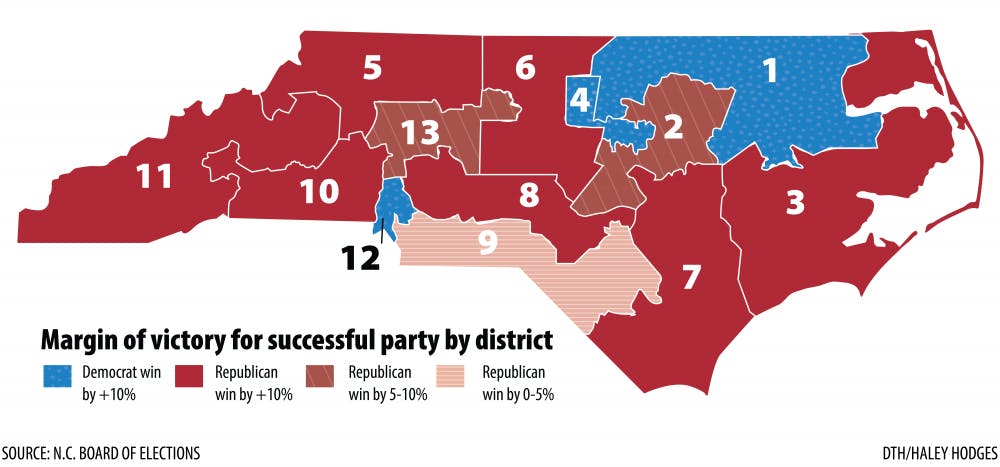A bipartisan bill supporting the impartial redrawing of North Carolina’s voting districts was filed Wednesday in the N.C. General Assembly.
This bill to help end gerrymandering was largely drafted by state N.C. Rep. Robert Reives, D-District 54, beginning in January 2019. Other primary supporters are N.C. Representatives Chuck McGrady, R-Henderson; Jon Hardister, R-Guilford; Brian Turner, D-Buncombe, and the N.C. Coalition for Lobbying and Government Reform.
“What we are doing is we are putting together a commission that will ultimately be composed of about 11 different people,” said Reives.
The bill proposes that voting district lines be drawn by an independent commission. There would be four people from each of the two most dominant political parties in the state at the time of the drawing, and three people not associated with those two parties. Reives said the goal of the independent commission is to keep the process of drawing the lines open and public.
“I think if people see an independent commission working out in public and really get to see every step of the process, they feel good about the process, they feel good about the districting, they feel good about the government, and I think that’s an important step that we owe the public,” he said.
The installment of an independent commission would take the General Assembly, which currently draws the congressional and state House and Senate maps, further away from the process. However, the legislature would still have to approve the map the independent commission drew before it could be put into action.
“One of the criteria we definitely want to have in place is that they keep in mind continuity, they keep in mind commonalities, make sure that it follows the present constitution, that it will take no political consideration or incumbencies in consideration whatsoever,” said Reives.
Mitch Kokai, senior political analyst at the John Locke Foundation, said counties should not be split more than they absolutely have to, and those drawing voting districts should not factor in voter registration, voting histories of past districts or the residencies of incumbents. Kokai said the John Locke Foundation supports nonpartisan maps but is not taking a stance on a particular piece of legislation.
“Since North Carolina became a competitive two-party state, which goes back to the '70s, the party in power has used the redistricting process to try to extend its power and to disadvantage the other party,” he said.




